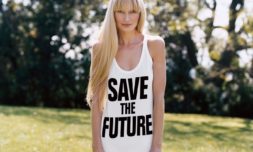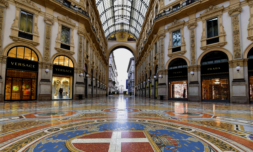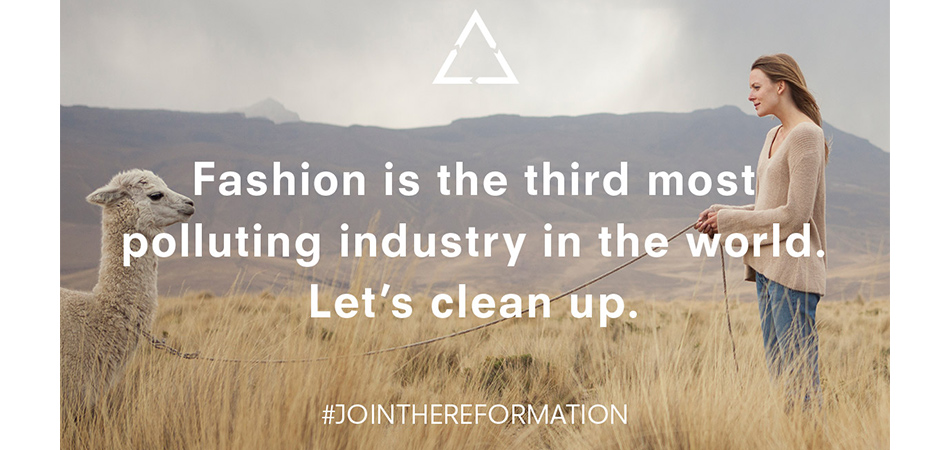This year, Eco-Age is moving its revolutionary Green Carpet Fashion Awards online, celebrating fashion’s commitment to sustainability with an innovative, solution-based virtual event.
In the past decade, sustainability consultancy firm Eco-Age has connected with fashion’s biggest environmental innovators.
Some of its recent collaborations include Candiani, an Italian production company that supplies sustainable denim for big fashion labels, and Diesel, which earlier this year launched a new upcycling collection that re-purposes old materials from leftover stock.
Eco-Age offers brands expertise in all areas of business, including event-planning, supply chain management, and textile creation, and has helped to bring new-age green ideas to an industry in desperate need of a sustainability shake-up.
Until now, fashion has relied on constantly updating lines, styles, and trends to meet the ever-changing demands of consumers. Its fast-paced nature requires the supply chain to function at a rate that’s devastating our environment and creating up to 10% of the world’s annual CO2 output.
Given the industry’s focus on delivering a different range of products every single season, it’s unsurprising that brands have been reluctant to meet the increasing demand for greener practices. Environmentally conscious production is time consuming and expensive compared to traditional, more wasteful methods, and requires companies to rework their internal systems from the ground up.
The pandemic and subsequent closing of nearly all retail stores has provided consumers with an abrupt but necessary opportunity to reflect, however, and re-consider if they really want to engage in seasonal trends that move at break-neck speeds. A push for more socially responsible and eco-friendly practices has emerged in 2020 and big bosses from retail stores like H&M have promised that ‘post-pandemic fashion will be sustainable and affordable’. The appetite is growing, and the coronavirus crisis has only sped things up.

In fact, if history is anything to go by, crises are often the breeding grounds for renewal. Experts and industry specialists have hinted that this sudden halt of consumerism could be the industry’s saving grace and an urgent opportunity to re-invent. Eco-Age is one such specialist.
Founded in 2009 by Livia Firth, the sustainability consultancy is acknowledging this new, unique opportunity and aims to prove that ‘beyond any reasonable doubt ethics and aesthetics are a match made in heaven’. It’s using the 2020 edition of its famous Green Carpet Fashion Awards to further spread the message that fashion has no choice but to embrace sustainability – and embrace it now.
Dubbed the ‘Oscars of Fashion,’ the awards were launched three years ago in partnership with Camera Nazionale della Moda Italiana (CNMI) to celebrate the work being done to reduce the industry’s environmental impact across the globe. Celebrities annually grace the green carpet to share an exclusive look into their wardrobes, showcasing treasured pieces alongside a call to action that encourages the world to become active citizens in sustainable fashion.
The awards are designed to highlight the ‘commitment of fashion houses to sustainability, as they work to embrace rapid change, while preserving the heritage and authenticity of small-scale producers’. The Green Carpet Fashion Awards are becoming an important part of the fashion calendar, and will be going ahead entirely digitally this year as lockdown and social distance measures remain in place across Europe.
Speaking with the company’s communications manager, Rebecca Hesketh, I learned that Eco-Age has fittingly placed the theme of togetherness and rebirth front and centre for this year’s edition, aiming to encourage new collaborative initiatives under the principles of social and environmental justice.
‘We’re taking this time to properly hit the reset button,’ she says. ‘By hosting a digital event we are able to reach a much wider audience and spread the message that as harmful and detrimental to people’s lives as Covid-19 has been, we’re now able to rethink where we are, learn some valuable lessons and implement some genuine change.’

With the ‘big voices in the industry’, as Hesketh puts it, being the key to communicating this message, it’s essential to have Eco-Age’s partner brands on board because ‘they’re the ones with the most influence.’
Eco-Age works solely with brands who encourage a regenerative cycle of second-hand fashion as well as selling one-of-a-kind pieces – those respected on platforms like Instagram for being vocal about their stance on sustainability.
Of the designers involved in the event, there are several who particularly stand out for their work with sustainability. To name a few, Prada has launched a ready-to-wear collection made entirely from regenerated nylon, Tommy Hilfiger recently announced an inspiring sustainability strategy titled Make It Possible, and Reformation has dedicated an entire advisory board to accomplishing a series of holistic commitments.
These brands are shifting the axis on which the entire industry operates, proving once and for all that it is indeed possible to create memorable looks that don’t cost the earth.























